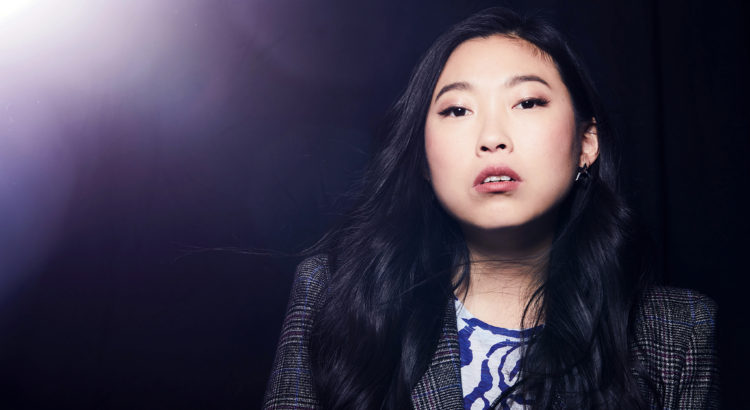Actress Awkwafina (Nora Lum) recently made Golden Globes history by being the first Asian American to win Best Actress, for her role in “The Farewell.” In “The Farewell,” she plays a Chinese-American struggling to figure out her own identity while attempting to protect her grandmother Nai Nai from the actuality that Nai Nai has only weeks to live.
Awkwafina has made quite a splash in the last couple of years, especially for her parts in “Ocean’s 8” and “Crazy Rich Asians.” She is notorious for releasing a song called “My Vag” in 2012, and other humorous and inappropriate rap songs. Part of her fame stems from her identity in opposition to the model minority stereotype, in which Asian Americans are expected to be quiet and submissive. Awkwafina’s performative personality in her music and acting roles have consistently portrayed her as loud and in-your-face, spunky, and refreshingly brash–a milestone in representation for Asian Americans.
Hailed as an irreverent, hilarious popular figure, some critics have attacked Awkwafina for building her celebrity upon appropriation of black culture. Is she simply a standout example of an Asian American who has garnered fame for her in-your-face persona, or has she actually profited off problematic cultural appropriation? While the answer may be tricky, I wanted to explore this issue further.
One writer explains that Awkwafina’s role as Peik Lin in “Crazy Rich Asians” demonstrates the appropriation of the “blaccent.” With wagging fingers, language such as “bawk, bawk, bitch,” and the use of “be,” and an overall sense of swagger, Awkwafina’s depiction of Peik Lin shows a cross-cultural connection to black vernacular. Yet, is she just portraying a character or is she complicit in a perpetuation of anti-blackness? The writer also suggests that maybe the quirkiness of Peik Lin’s character doesn’t stem from explicitly black language.
Cultural appropriation is not a new issue. Through media like Nicki Minaj’s “Chun Li” or Post Malone’s rapping, famous artists are no strangers to accusations (perhaps deserving) of stealing from other cultures. To some, cultural appropriation only occurs when someone from a dominant culture/ethinicity takes something from an oppressed culture (such as white people portraying black stereotypes).
Vernacular invented by people of color, notably black and brown folk, is commonplace among young people. Can a culture own language? This issue is particularly tricky to discuss in the current era–with the mixing and morphing of all dialects and accents in 21st century of America, the cultural diversity of people is abundant. I think this meshing of cultures is quite beautiful and is what makes our country so unique.
However, what is truly problematic about Awkwafina is the fact that her entire portfolio relies on the flamboyant, swagger-filled potrayal of a common stereotype of African Americans. This usage of African American Vernacular English and black mannerisms unfortunately has real-world harmful consequences for black and Latinx people, who are often discriminated against for not using Standard English, which is ethnocentrically thought of as culturally superior. While I am proud of the Asian American representation Awkwafina has helped achieve, it’s worth noting that her fame stems from a derogatory caricature of black people, which is inherently problematic in itself, no matter who the perpetrator is.
*As an Asian American woman, I obviously do not speak for any entire culture. These opinions are entirely my own.



Leave a Reply
1 Comment on "Is Awkwafina Problematic?"
Thank you. I’m so disappointed that she doesn’t own this truth WHILE profiting from it.